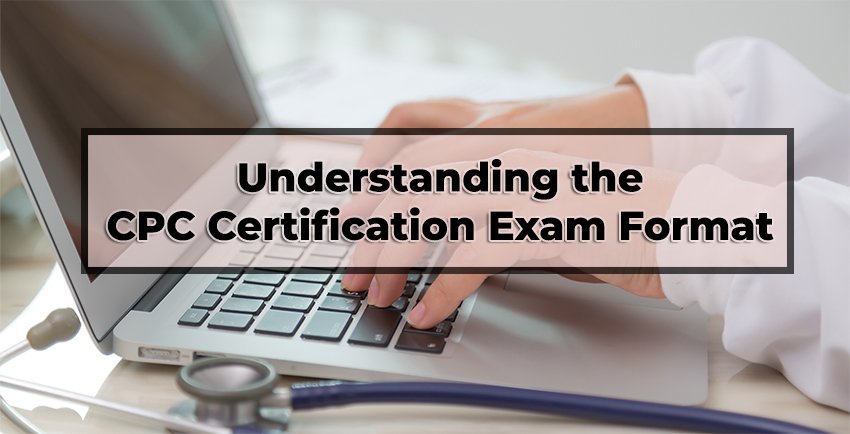Understanding the CPC Certification Exam Format
The Certified Professional Coder (CPC) certification, offered by the American Academy of Professional Coders (AAPC), is a key credential for medical coding professionals. It signifies proficiency in coding practices, adherence to coding guidelines, and understanding of healthcare regulations. Understanding the CPC exam format is crucial for effective preparation and successful completion. This guide provides an in-depth look at the CPC certification exam format, including its structure, content, and tips for effective preparation.

Exam Overview
The CPC certification exam is a comprehensive test designed to assess your knowledge and skills in medical coding. The exam format includes a mix of multiple-choice questions and practical coding scenarios. Here’s a detailed breakdown of the exam:
1. Exam Structure
- Number of Questions: The CPC exam consists of 150 multiple-choice questions.
- Duration: The total time allotted for the exam is 5 hours and 40 minutes.
- Format: The exam is computer-based and is administered at Pearson VUE testing centers.
- Scoring: The passing score for the CPC exam is 70%. The exam is scored based on the number of correct answers.
2. Content Areas
The CPC exam covers a broad range of topics related to medical coding. The content is divided into several domains:
- Coding Guidelines and Conventions: Understanding of coding systems like ICD-10-CM, CPT, and HCPCS Level II.
- Medical Terminology and Anatomy: Knowledge of medical terminology, anatomy, and physiology to accurately interpret and code medical records.
- Healthcare Laws and Regulations: Familiarity with healthcare laws such as HIPAA, billing practices, and compliance requirements.
- Coding Scenarios: Application of coding knowledge to real-world scenarios, including assigning appropriate codes for diagnoses, procedures, and services.
- Practice Management: Understanding of practice management and revenue cycle management, including claim processing and denial management.
3. Question Types
The CPC exam primarily features multiple-choice questions with four answer choices. These questions test your ability to apply coding guidelines and conventions to various clinical scenarios. Additionally, some questions may require you to:
- Select Correct Codes: Identify and select the correct CPT, ICD-10-CM, and HCPCS Level II codes based on provided medical documentation.
- Interpret Coding Scenarios: Analyze and interpret clinical scenarios to determine the most accurate coding solutions.
- Apply Guidelines: Apply coding guidelines and conventions to ensure accurate and compliant coding practices.
Preparing for the CPC Exam
Effective preparation is key to passing the CPC exam. Here are some strategies to help you prepare:
1. Study Materials
- CPC Exam Study Guide: Utilize a CPC exam study guide that covers all content areas, including sample questions and practice tests.
- Coding Books: Use updated coding manuals, such as the ICD-10-CM, CPT, and HCPCS Level II coding books.
- Online Resources: Access online resources, such as webinars, online courses, and practice exams, to enhance your understanding and test-taking skills.
2. Practice Exams
- Mock Exams: Take practice exams to familiarize yourself with the question format and time constraints. Review your answers to identify areas for improvement.
- Question Banks: Use question banks to practice a wide range of questions and scenarios. Focus on areas where you need additional practice.
3. Study Groups and Forums
- Join Study Groups: Participate in study groups or forums with other CPC exam candidates to discuss difficult topics and share study strategies.
- AAPC Forums: Engage in discussions on AAPC forums to gain insights from experienced coders and CPCs.
4. Review and Revise
- Regular Review: Regularly review and revise key topics, guidelines, and coding conventions to reinforce your knowledge.
- Focus on Weak Areas: Identify and focus on your weak areas, and seek additional resources or assistance to improve your understanding.
Test Day Tips
On the day of the exam, follow these tips to ensure a smooth testing experience:
- Arrive Early: Arrive at the testing center early to complete check-in procedures and acclimate yourself to the testing environment.
- Bring Required Materials: Bring necessary identification and any allowed materials, such as coding manuals, as specified by the testing center.
- Manage Your Time: Allocate your time wisely during the exam to ensure you can answer all questions. Pace yourself to avoid rushing through questions.
- Stay Calm: Stay calm and focused throughout the exam. Read each question carefully and double-check your answers before submitting.
Understanding the CPC certification exam format is essential for effective preparation and achieving certification. By familiarizing yourself with the exam structure, content areas, and question types, you can better plan your study approach and increase your chances of success. Utilize a variety of study materials, practice exams, and support resources to ensure comprehensive preparation. With the right strategy and dedication, you can successfully navigate the CPC certification exam and advance your career in medical coding.

